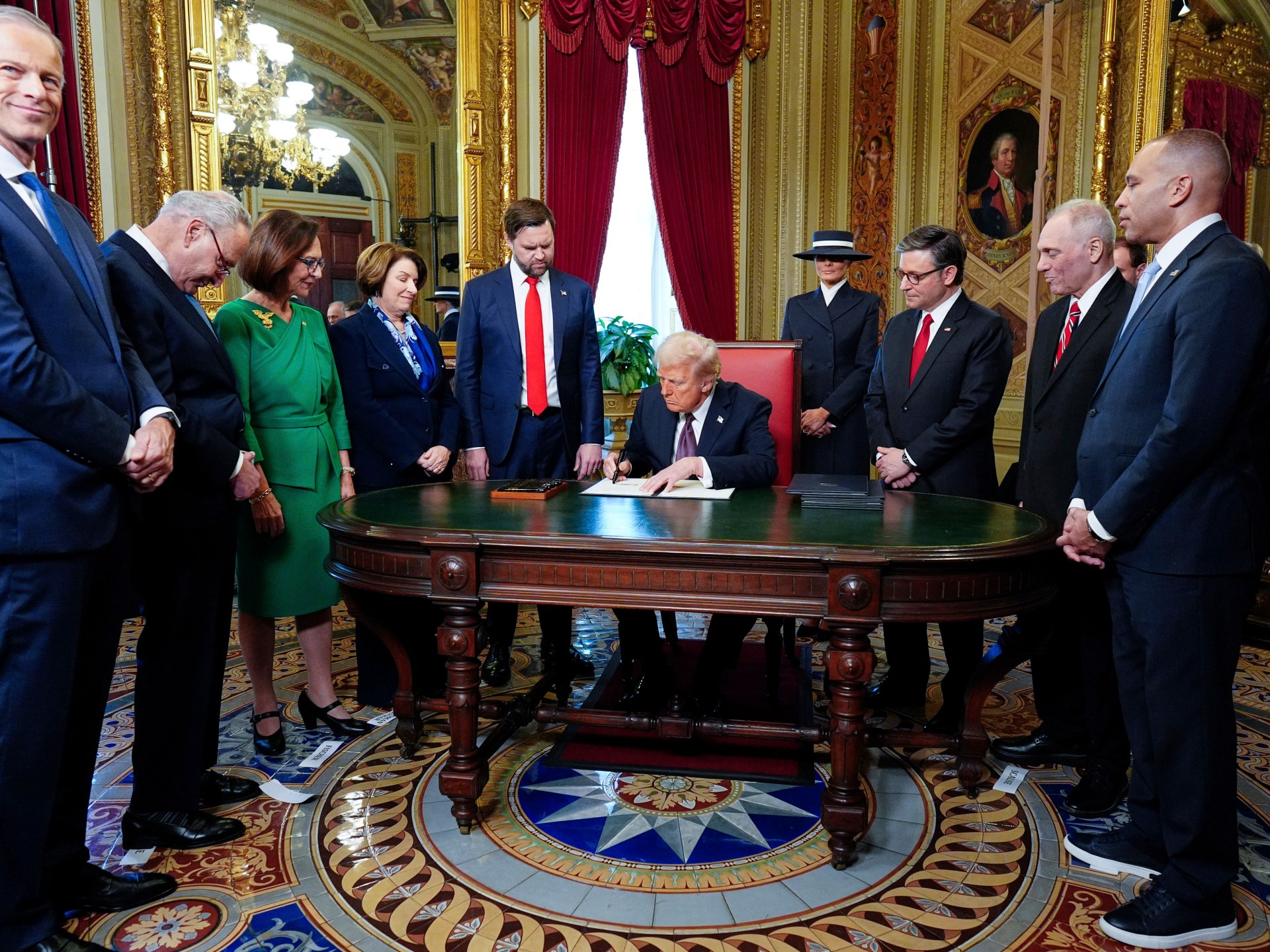Railway builders erect a box girder at the site of the standard project in front of the Huning section of the Shanghai-Nanjing-Hefei high-speed railway in Suzhou, Jiangsu province, China, on January 10, 2025.
Costfoto | Nurphoto | Getty Images
China’s economy expanded by 5.4% in the fourth quarter, exceeding market expectations, as a flurry of stimulus measures boosted GDP growth and allowed Beijing to meet its annual target.
That last-quarter sprint helped lift China’s full-year GDP growth to 5.0% in 2024, according to China’s National Bureau of Statistics, in line with the official target of “around 5%.”
The fourth-quarter rebound beat Reuters-polled economists’ estimates of a 5% growth, while outpacing the 4.6% in the third quarter, 4.7% in the second quarter, 5.3% in the first quarter.
“The shift of policy stance in September last year helped the economy to stabilize in Q4, but it requires large and persistent policy stimulus to boost economic momentum and sustain the recovery,” Zhiwei Zhang, president and chief economist, Pinpoint Asset Management, said in a note.
The statistics bureau cautioned, “we must be aware that the adverse effects brought by external environment are increasing, the domestic demands are insufficient.” It called for implementing “more proactive and effective macro policies.”
Last year’s growth was slower compared with the 5.4% growth in 2023, post-pandemic. As part of an annual revision to preliminary figures, the statistics bureau in late December revised the 2023 GDP growth to 7.4%, according to a CNBC calculation of the official data.
In December, retail sales jumped 3.7% from a year earlier, exceeding Reuters’ forecast of 3.5%. Industrial output expanded 6.2% from a year earlier, versus expectations of 5.4%, underscoring China’s imbalance between domestic production and weak demand.
The full-year fixed asset investment rose 3.2% in 2024, shy of the projected 3.3% increase in a Reuters poll, as real estate investment drag steepened to a 10.6% drop, compared with the January to November period.
The urban unemployment rate ticked higher to 5.1% in December from 5.0% in the prior month.
Disposable income for urban residents grew by 4.4%, slower than the overall economic growth, while that of rural residents increased by 6.3% in 2024.
Stimulus boost
China has been striving to boost economic growth and has taken several measures towards this end.
Since late September, Chinese authorities have called for halting the real estate decline, cut interest rates and announced a five-year fiscal package worth 10 trillion yuan ($1.4 trillion) to ease local governments’ financing crisis. Beijing has also expanded a program for consumers to trade-in used cars and home appliances, and buy new ones at a discount.
“They are betting on a substantial infusion of policy stimulus and reforms to turbo boost the country’s economy in 2025, invigorating domestic demand and warding off disinflationary loom,” said Bruce Pang, distinguished senior research fellow at the National Institution for Finance and Development.
Top leaders have pledged “proactive” fiscal measures and a “moderately loose” monetary policy stance for the current year.
Some analysts expect stimulus might start to take effect this year, but it will take longer to see a significant impact.
The real estate slump and uncertainty about future income have weighed on consumer spending and business confidence, adding to deflation concerns.
China’s consumer inflation has remained barely above zero, while wholesale prices fell for a 27th consecutive month in December, official data showed last week.
The government is expected to reveal the official growth targets for 2025 and additional stimulus measures at the annual parliamentary meetings in March.
Economists forecast China will keep its GDP growth target for 2025 at around 5%, if not slightly lower.
Friday’s data comes just days before Donald Trump is set to be inaugurated as the next U.S. president on Jan. 20. Trump has said that soon after taking office, he plans to impose additional tariffs of at least 10% on Chinese goods. He has also appointed some China hawks to key cabinet posts.
The statistics bureau reported Friday that the national population declined by 1.39 million from 2023, to 1.408 billion people in 2024. The absolute decline in 2023 from the prior year was 2.08 million people, according to the statistics bureau.



Leave a Comment